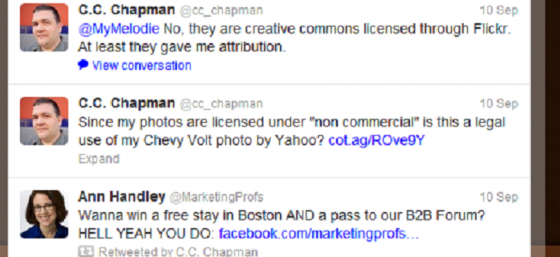
I saw a disturbing article on Mashable yesterday about 18 year-old Paula Asher. Asher lives in Kentucky and according to the article, she published the following post on Facebook: “My dumbass got a DUI and I hit a car LOL.”
Asher was charged with multiple crimes when she hit a car that contained 4 passengers – thankfully none of them were hurt. The victims contacted a judge after they saw the post. The judge ordered Asher to deactivate her Facebook account. When Asher refused, the judge sentenced her to 2 days in jail for contempt of court. The judge didn’t say under which law she could give Asher such an order.
I don’t know Kentucky law, but I can’t think of any laws Asher broke with her post. She was talking about herself and didn’t mention anyone by name so I don’t think the Facebook post constitutes defamation or invasion of privacy. Intentional infliction of emotional distress generally requires outrageous behavior that was intended to result in harm. I think Asher’s decision to make such a post was stupid, but not outrageous.
Did the accident victims have a claim against Asher because of her post? I could see them being offended by the “LOL” which suggests Asher didn’t take her DUI or accident seriously, but I don’t see where someone would think it’s illegal. I can see Asher’s defense attorney being annoyed with her because she basically admitted guilt in her post. If the passengers in the other car were going to go after her for damages, I could see them pursuing extra damages for pain and suffering because of her post. I don’t see where a judge would think they had the authority to make Asher remove the post or delete her account based on this post. But there might be something in Kentucky state law that gives the judge the authority to do what she did.
I suspect Asher was not represented by counsel when she appeared in court. I would expect her attorney to question the basis for the judge’s authority to give such an order to deactivate Asher’s account and to hold her in contempt for refusing to follow it.
It would be hard to hear the order the judge gave Asher and not respond with “You’ve got to be joking” or something along those lines. I think the proper response is closer to “Your Honor, I understand that these people are upset by my Facebook post and will delete it if you wish. It was a mistake and I’m sorry. Would you please tell me what law gives judges the ability to force someone to deactivate their entire account because of one misguided post?”
Stories like this make me question whether judges receive proper training about social media sites and their authority over other people’s accounts. Stories like this are also good reminders about the importance of privacy settings and to be thoughtful when you post because you never know when you’re going to be confronted with your own words.
If you have questions about social media law, contact a social media attorney (like me) in your community.
Feel free to connect with me via Twitter, Google+, Facebook, and LinkedIn, or you can email me.
Please visit my homepage for more information about Carter Law Firm.











